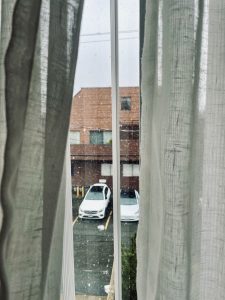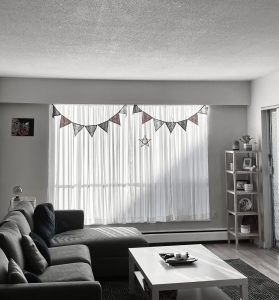Occupying Spaces/Places by Adishi Gupta
When I first saw the title of this issue ‘Power of Place’, I was intrigued to say the least. It felt like something I had thought about a lot and yet, there was also something elusive about it. Something it was hinting at, that I did not yet know. What struck me particularly was the use of the word ‘place’, which inadvertently made me think of the word ‘space’. But they were different words. Right?
I wasn’t entirely sure.
So I decided to look up exactly that. What is the difference between space and place?
I did not know it then but it turned out to be a delightful Google search because of one particular result from Oxford Bibliographies:
Space is often defined by an abstract scientific, mathematical, or measurable conception while place refers to the elaborated cultural meanings people invest in or attach to a specific site or locale.
(Lawrence-Zuniga, 2017)
As a woman, taking up space has never been my strong suit. When I talk, it feels like I am talking too much. When I sit, it feels like I am spreading too much. When I lie down, it feels like my body is taking up too much space. When I walk, I feel like I am constantly in other people’s way. When I exist, I feel like I am being too much.
Learning to take up space has been a journey of finding my place in the world.
My move to Vancouver from New Delhi in 2021 meant a lot of things. One of the biggest being that I was going to be a first-time renter in an entirely new country. I became privy to Vancouver’s infamous housing woes even before I got here. I spent days and nights trying to find reasonable accommodation so that I would have somewhere to go after I landed. Fortunately enough, I did find a space that I moved into when I got here.
At that time, if someone had told me that I would have lived in three houses with eight different people in less than a year, I would not have believed them. In fact, I would have thought they had no idea about the kind of person I am. As a particularly recluse and reserved person, it would have been completely impossible for me to have managed anything of that sort.

And yet, it happened.
All of it.
In less than a year’s time, I went from living with three strangers in a house, to five others in student accommodations (rather abruptly, but that is an entire essay in itself) and now, finally with one other person. Amidst this constant catapulting, I became aware on more than one occasion of my discomfort with taking up space.
Am I being too loud in the kitchen? On the phone? Am I being in the living room for too long? Am I doing all house chores properly? When did I last buy communal cleaning supplies? Did I clean up after myself properly?
In one of the sessions with my therapist, she noted that I seem to be apologetic of my presence, like I am causing inconvenience just by being.
The temporariness of houses and housemates has meant constantly (re)adjusting to the dynamic of co-living depending on the sensibilities of the space and the people. Finding homes in houses has been an exercise in learning to see the beauty and find belongingness in that which is undeniably transient.
And thus a lesson in life itself.
Do some of us ever truly have a place in the world if the spaces we occupy are constantly folding in on themselves?
Reference
Lawrence-Zuniga, D. (2017). Space and place. Oxford Bibliographies. Retrieved March 17, 2023, from https://www.oxfordbibliographies.com/display/document/obo-9780199766567/obo-9780199766567-0170.xml#:~:text=Space%20is%20often%20defined%20by,a%20specific%20site%20or%20locale.
About the Contributor
Writer, editor and researcher by profession, Adishi is a graduate student in the Faculty of Education at UBC Vancouver. Her work largely revolves around critical theory and pedagogy with a focus on anti-oppressive frameworks from a feminist and anti-racist lens. When she is not working, you can find her chasing blue skies and flowers.
Images provided by Adishi Gupta



I think that as women in society, we are taught not to take up space. We are taught that we are not and should not be the center of attention, so being that for even a second feels like we are doing something wrong